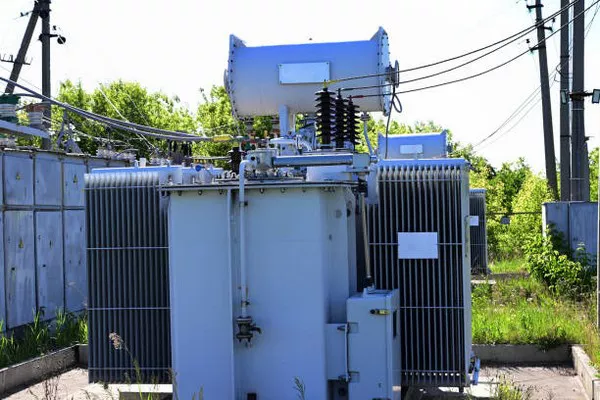When the lights go out or the power needs to be supplied on a job site, a 12,000-watt generator can be a lifesaver. But how long can you expect such a generator to run before it needs a refuel? The answer isn’t straightforward; it depends on a variety of factors, including the type of fuel, load demand, and the efficiency of the generator. In this guide, we’ll explore these elements in detail, helping you understand the expected runtime of a 12,000-watt generator in different scenarios.
Introduction to 12,000-Watt Generators
A 12,000-watt generator is considered a heavy-duty model, capable of powering essential appliances in homes and various equipment on job sites. Such generators are popular for their versatility, providing enough power to run air conditioners, refrigerators, and multiple tools simultaneously. Understanding the runtime of these generators is crucial for effective planning and usage.
Understanding Generator Runtime
What Is Rated Power?
Rated power refers to the continuous power output a generator can produce without overheating or damaging its components. For a 12,000-watt generator, this means it can continuously supply up to 12,000 watts of electricity.
What Is Surge Power?
Surge power, or starting power, is the extra wattage a generator can provide for short periods, typically lasting a few seconds. Many appliances, like refrigerators and air conditioners, require more power to start than to run. For example, a refrigerator may need 2,000 watts to start but only 1,200 watts to run continuously.
Key Factors Influencing Runtime
Several factors determine how long a 12,000-watt generator will run on a full tank of fuel. Understanding these elements is crucial for estimating runtime.
Fuel Type
Generators can run on different fuel types, including gasoline, propane, and diesel. Each type has its own efficiency and consumption rates:
Gasoline: Generally more readily available and easier to use, gasoline generators tend to have shorter runtimes compared to diesel.
Propane: Often cleaner burning and easier to store long-term, propane generators can be more efficient but may have lower power outputs for the same tank size.
Diesel: Diesel generators typically offer better fuel efficiency, leading to longer runtimes.
See Also: Choosing the Right Generator Size for a 1,200 Sq Ft House
Fuel Tank Capacity
The size of the fuel tank is a major determinant of how long a generator can run. A larger tank will generally provide a longer runtime. Most 12,000-watt generators have fuel tanks that range from 5 to 10 gallons.
Load Demand
The load connected to the generator significantly affects its runtime. If the generator is running at full load (12,000 watts), it will consume fuel more quickly than if it is running at a partial load. Knowing the wattage of the appliances and equipment being powered is essential for accurate calculations.
Fuel Consumption Rates
Calculating Fuel Consumption
To determine how long a 12,000-watt generator will run, you first need to understand its fuel consumption rate. Generally, fuel consumption is measured in gallons per hour (GPH).
A rough estimate for a 12,000-watt gasoline generator is:
Full Load: Approximately 0.5 to 1 gallon per hour.
Partial Load: Approximately 0.2 to 0.5 gallons per hour.
Example Scenarios
Example 1: If your generator has a 7-gallon tank and consumes 0.75 gallons per hour at full load, the runtime would be:
Runtime=Tank Capacity/Fuel Consumption=7 gallons/0.75 gallons/hour≈9.33 hours
Example 2: If the generator runs at a partial load of 6,000 watts and consumes 0.4 gallons per hour:
Runtime=7 gallons/0.4 gallons/hour=17.5 hours
Estimating Runtime Under Different Loads
Full Load vs. Partial Load
Full Load: Running a generator at its rated power (12,000 watts) will result in shorter runtimes due to higher fuel consumption.
Partial Load: Operating the generator at 50% of its capacity (6,000 watts) can significantly extend the runtime.
Real-World Examples
Home Backup Power: If you’re running a refrigerator (800 watts), a couple of lights (200 watts), and a television (300 watts), your total load is 1,300 watts. This is only 10.8% of the generator’s capacity, allowing for a longer runtime. Assuming a consumption rate of 0.2 gallons per hour, the generator could run for about:
Runtime=7 gallons/0.2 gallons/hour=35 hours
Construction Site: If the generator is powering multiple tools totaling 10,000 watts, and it consumes 0.6 gallons per hour, the runtime would be:
Runtime=7 gallons/0.6 gallons/hour≈11.67 hours
Maximizing Generator Efficiency
Maintenance Tips
Regular maintenance is essential for maximizing the efficiency and lifespan of a generator. Here are some tips:
Oil Changes: Change the oil regularly, as dirty oil can decrease performance.
Clean Air Filters: Keep air filters clean to ensure optimal airflow.
Inspect Fuel Lines: Regularly check fuel lines for leaks or blockages.
Usage Tips
Avoid Overloading: Stay within the generator’s rated capacity to prevent damage and excessive fuel consumption.
Use Energy-Efficient Appliances: When possible, use energy-efficient appliances to reduce load.
Conclusion
A 12,000-watt generator can be a powerful tool for providing electricity during outages or powering equipment on the go. The runtime depends on factors like fuel type, tank size, and load demand. By understanding these variables, you can effectively estimate how long your generator will run and ensure it meets your needs.
You Might Be Interested In

